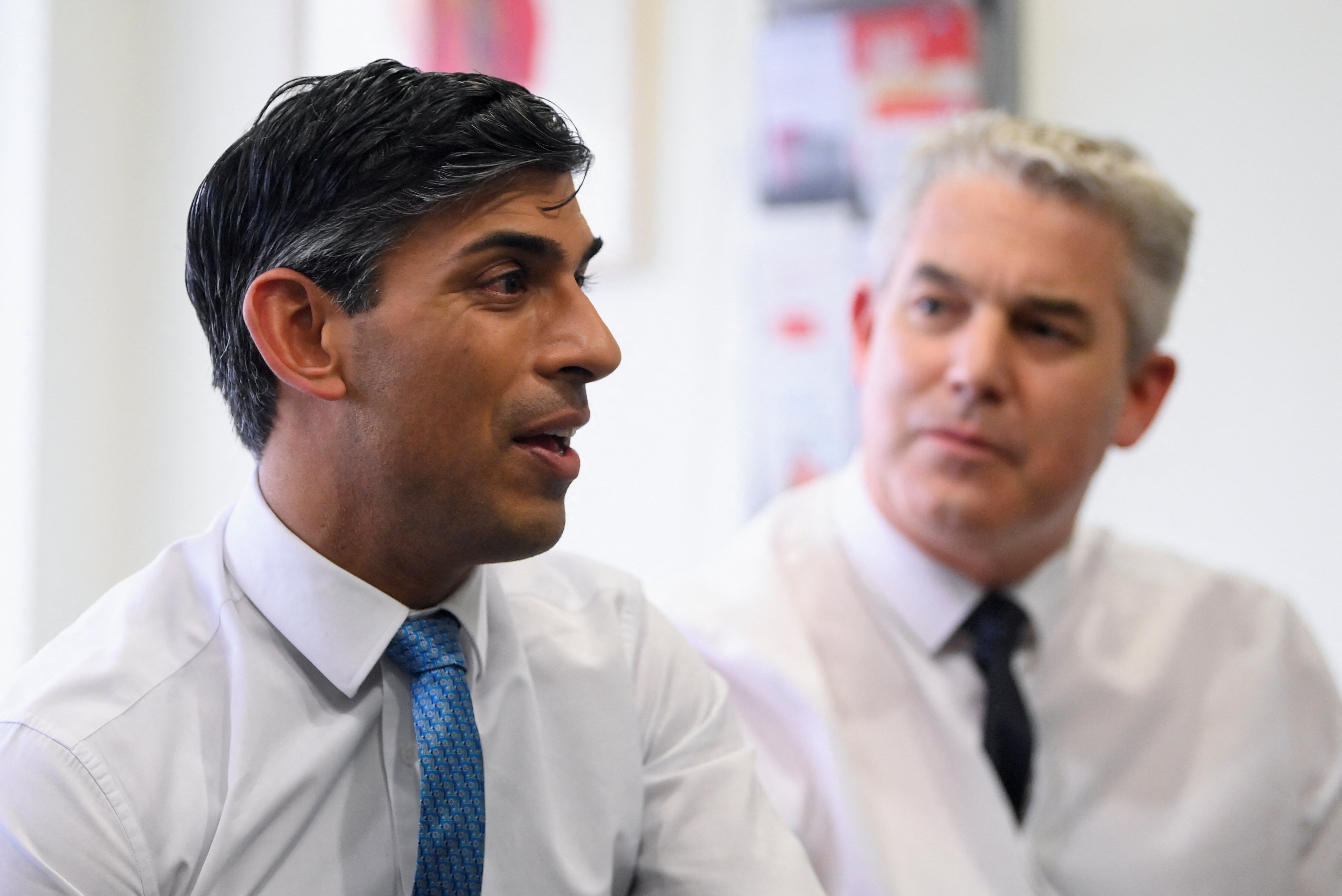It is the Tory government we can’t afford, not junior doctors
Letters to the editor: our readers share their views. Please send your letters to letters@independent.co.uk

The government refuses to talk to junior doctors currently on strike, who seem to carry an occupational punch well above the weight their title suggests.
Strikes in every area of public life have at their heart the austerity policy of successive Tory governments. They have run down the NHS with the intent of a sell-off and underpaying its human resource has been a major tactic.
On the question of affordability, the junior doctors have no responsibility for the inflation which adversely impacts us all, nor are they responsible for the parlous state of public finances. The government on the other hand has been a positive contributor to both.
We are all familiar with the impacts of Brexit. The enormous cost to the country of Kwarteng’s “fiscal event” will be a burden for years to come and many mortgage payers continue to pay for just one of its consequences.
Remember the eye-watering sums of money lost to Covid-related fraud (and still to be recovered) and other Covid mismanagements? Both occurred on the watch of Rishi Sunak, then chancellor. We could also add in the missing contributions to the exchequer of the tax-dodging rich. The list goes on.
There is no valid argument against a reasonable pay rise unless it can be proved that in-job performance has deteriorated. It is Sunak and Tory governments that we cannot afford, not junior doctors or the NHS.
David Nelmes
Newport
The ballot box will be educational for the Tory party
So the government’s self-elected mouthpiece Lord Bethell, the recipient of a more than modest pay hike in recent times, thinks that junior doctors are making “a fortune” and that it is “appalling” for them to go on strike.
It is truly a measure of the moral dereliction of this government that they can even begin to think in this way. The service provided to the nation by these young, highly skilled professionals is vital, and for it to be disregarded so quickly by Bethell and Steve Barclay is disgusting. The ballot box will be educational for the Tories.
Peter Abbotts
Address Provided
Strikes aren’t enough, we need to vote
One thing is clear from the current mess, strikes are no substitute for voting.
You’d have to be completely authoritarian to deny the right of a worker to withdraw their labour. However, we need to ask ourselves – in a service-led economy and in a country where anything and everything that worked for the people has been privatised, put into the hands of the wealthy and the profit-driven what do strikes achieve?
Customers on the hard end of rail strikes will say (and have said) they support the strikes and are sympathetic to the workers. They will also say they cause personal and daily misery. There is support for striking NHS workers while also patients worry about the effects on their health. Workers lose money. Patients and commuters lose already stretched services.
In England, waterways run by privatised companies are a sewage disaster. And yet the profits keep rolling in – and then out – to offshore hidey-holes in many cases.
People need to be educated to vote and more importantly to start voting in their best interests, and not for the posh idiots who spout the shiniest lies.
Amanda Baker
Edinburgh
Solar is the answer to low-cost energy
The news that solar power has reached a “pivotal point” globally is a wake-up call for the government to take real action. The UK is at risk of missing out on the huge benefits solar power presents. Only 1 per cent of commercial property roofs in the UK have solar panels and landlords have been a significant blocker of investment to date.
While the government’s latest “Green Bill” speaks to the desire to get more solar installed on UK commercial rooftops, there’s no real mandate to motivate landlords to do anything about it.
The government must legislate that putting solar on commercial building roofs does not constitute a material change, thereby removing the landlord barrier standing in the way of businesses accessing cheap electricity. Free solar rooftops are now available to businesses, so there are no longer financial challenges to installing solar.
Adding low-cost green solar electricity to businesses’ energy mix will significantly reduce their electricity bills and provide certainty in an increasingly uncertain world. The FSB has found 24 per cent of small firms are trapped in fixed energy contracts, with 28 per cent (370,000 small businesses) forced into downsizing or closing entirely as a result. As the backbone of the economy, this cannot be allowed to happen.
But landlords are a major barrier to businesses accessing cheap solar electricity – under current FRI lease terms, tenants need express permission from landlords to make “material changes” to properties, including installing solar. And the majority of landlords simply don’t care about their tenants getting cheaper electricity prices. This apathy from both landlords and the government cannot be allowed to continue. Not when there is such a significant benefit to be realised from solar electricity.
Daniel Green
CEO and Co-founder of Electron Green






Join our commenting forum
Join thought-provoking conversations, follow other Independent readers and see their replies
Comments